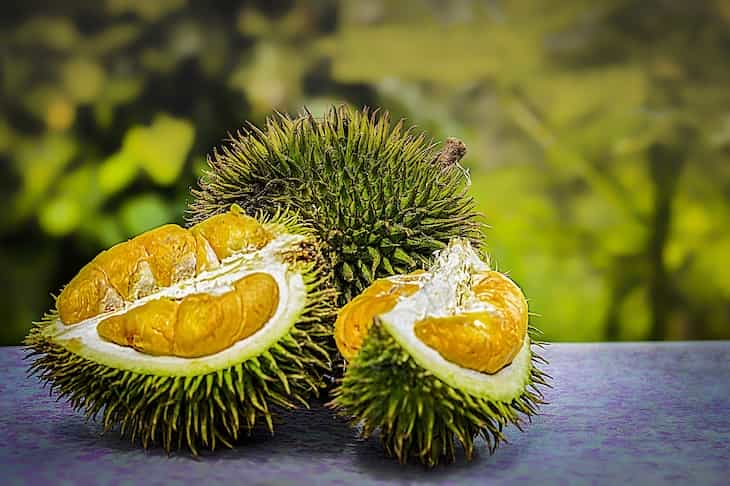Know your food: Durian – a fruit with character
From many fruits, durians can be easily recognized by one of their most distinctive features – their smell.
Meanwhile, it also has some other interesting features, making durians one of the most interesting fruits in the world.
Let's find out more!
Unique Smell
Durians are famous for their distinctive and strong odor, often described as a mix of rotten onions, turpentine, and raw sewage.
While some people find it unpleasant, others appreciate its unique aroma.

Thorny Exterior
The outer shell of a durian is covered in sharp, sturdy spikes or thorns.
Handling a durian requires caution to avoid getting pricked by these spikes.
Creamy Flesh
Despite its strong smell, the inner flesh of a durian has a creamy and custard-like texture.
The flavor is a combination of sweet and savory notes.
Southeast Asian Icon
Durians are considered the "king of fruits" in Southeast Asia, where they are highly prized.
However, their smell is so intense that durians are banned in many hotels and public transportation in the region.
Nutrient-Rich
Durians are rich in vitamins, minerals, and healthy fats.
They provide a good amount of calories and are a source of energy.
Heaty Fruit
In traditional medicine in some Asian cultures, durians are considered a "heaty" fruit, believed to generate warmth in the body.
This classification is taken into account in local dietary practices.
Short Durian Season
Durian trees bear fruit only during specific seasons, and the harvest period is relatively short.
This limited availability adds to the exclusivity and demand for durians.
Cultural Significance
Durians are not just a fruit; they hold cultural significance in various Southeast Asian societies.
Durian festivals and competitions celebrate the love for this unique fruit.
Durian Varieties
There are numerous varieties of durians, each with its own flavor profile, size, and shape.
Some varieties are highly sought after and can be quite expensive.
Previously, we talked about antioxidants.

